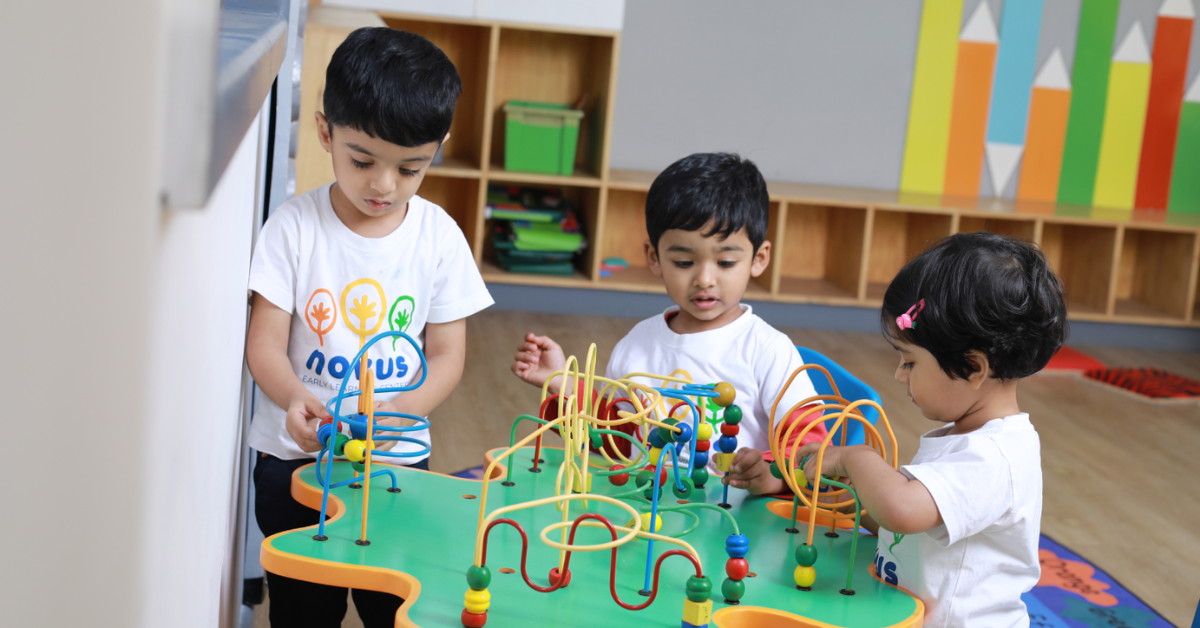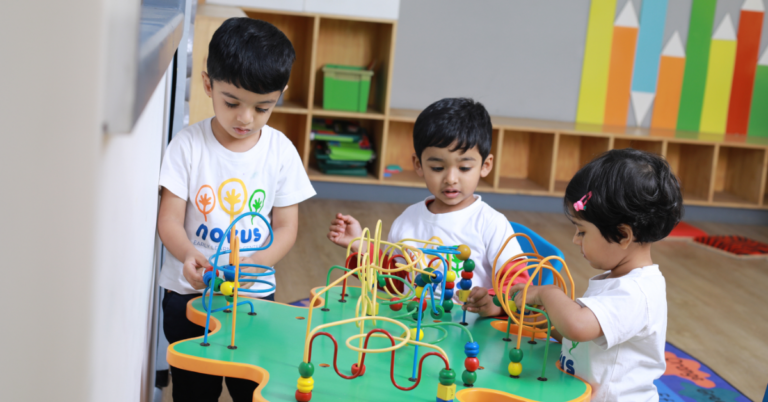Preschool Near Me: Choosing the Right Start for Your Child’s Educational Journey
Choosing a preschool is one of the most important decisions a parent can make. It’s the first formal step in a child’s educational journey, setting the tone for future learning and development. When you search for “Preschool Near Me,” you’re not just looking for convenience — you’re looking for a nurturing, safe, and stimulating environment where your child can thrive.
This comprehensive guide will help you understand what to look for in a preschool, the benefits of early childhood education, and how to make the best decision for your little one.
Why Preschool Matters
Preschool is more than just a place where children go to play. It’s a foundational setting where social, emotional, physical, and cognitive development begins to flourish.
1. Social Development
At preschool, children learn how to interact with peers, share, take turns, and communicate effectively. These social skills are crucial not just for school success, but for life in general.
2. Cognitive Development
Preschool activities are designed to foster critical thinking, problem-solving, and creativity. From puzzles and story time to basic science experiments, children engage in tasks that stimulate their curiosity and learning.
3. Emotional Growth
A good preschool helps children understand and manage their emotions. Teachers play a vital role in helping them express their feelings in a healthy way and build resilience.
4. Language and Communication
Early exposure to language — through stories, songs, and conversations — helps children expand their vocabulary and communication skills.
5. Independence and Confidence
Preschool provides a structured environment where children can learn to do things on their own, boosting their confidence and independence.
What to Look For in a Preschool Near You
When you begin your search for “preschool near me,” consider the following factors to ensure you’re selecting the best fit for your child:
1. Location and Accessibility
Choose a preschool that’s conveniently located — either near your home or workplace. This makes drop-off and pick-up easier and less stressful.
2. Safe and Clean Environment
Safety should be a top priority. Look for a preschool with secure entry points, childproofed areas, clean classrooms, and proper hygiene practices.
3. Qualified and Caring Teachers
Teachers should be trained in early childhood education and passionate about working with young children. Observe how they interact with the kids — are they patient, nurturing, and attentive?
4. Age-Appropriate Curriculum
A good preschool offers a well-rounded curriculum tailored to the developmental stages of young children. It should include play-based learning, art, music, movement, and early literacy and numeracy skills.
5. Structured Daily Routine
Children thrive in a routine. A balanced schedule with time for learning, play, rest, and meals helps children feel secure and know what to expect.
6. Positive Atmosphere
Visit the school to get a sense of the atmosphere. Look for happy children, engaged teachers, and a warm, welcoming environment.
7. Parental Involvement
Preschools that encourage parental involvement often have better outcomes for children. Check if the school has open communication, parent-teacher meetings, and family events.
8. Teacher-to-Child Ratio
Smaller class sizes allow for more individualized attention. Ensure the preschool maintains a low teacher-to-child ratio in line with recommended guidelines.
Benefits of Attending a Nearby Preschool
Searching for a preschool near you comes with unique advantages:
1. Community Connection
Attending a local preschool helps your child build friendships with neighborhood peers, which can carry on into primary school and beyond.
2. Ease of Access
Close proximity means reduced travel time and more convenience, especially on busy mornings or during emergencies.
3. Family Involvement
Being nearby allows you to participate more easily in school events, volunteer opportunities, or drop by when needed.
4. Familiarity with the Area
Children feel more comfortable in a familiar environment, and being close to home helps reduce anxiety during the early days of preschool.
Questions to Ask When Visiting a Preschool
Before enrolling your child, visit potential preschools and ask key questions to evaluate if it’s the right fit:
-
What is your teaching philosophy?
-
What is a typical day like here?
-
How do you handle discipline and conflict resolution?
-
What is your approach to toilet training (if applicable)?
-
What is the process for communicating with parents?
-
Are meals and snacks provided?
-
How do you ensure safety and security?
-
What qualifications and experience do your staff have?
-
How do you support children with different learning styles or needs?
How to Prepare Your Child for Preschool
The transition to preschool can be challenging, but with the right preparation, it can be a positive experience.
1. Talk About It Positively
Speak to your child about preschool in an enthusiastic and reassuring way. Read books about going to school and talk about the fun things they’ll do.
2. Establish a Routine
Begin to establish a morning and bedtime routine a few weeks before school starts. This helps your child adjust more easily to the preschool schedule.
3. Practice Separation
Start practicing short periods of separation to help your child get used to being away from you.
4. Visit the Preschool Together
If possible, take your child to visit the preschool before the first day. Let them meet the teachers and explore the classroom.
5. Encourage Independence
Teach your child basic self-care skills such as washing hands, using the toilet, putting on shoes, and eating on their own.
Common Misconceptions About Preschool
“It’s just glorified babysitting.”
Preschool is designed with specific developmental goals in mind. While it involves play, that play is intentional and supports learning.
“My child is too young to learn.”
Children are naturally curious and absorb information rapidly at a young age. Preschool provides the right environment to harness that potential.
“I can teach my child everything at home.”
While home learning is important, preschools offer structured, peer-based learning that parents may not be able to replicate alone.
Frequently Asked Questions (FAQ)
Q1. At what age should my child start preschool?
Most children start preschool between the ages of 2 and 4. However, readiness depends more on your child’s developmental stage than their age.
Q2. How do I know if my child is ready for preschool?
Signs of readiness include the ability to follow simple instructions, express needs, play with others, and show some independence (like eating or dressing with help).
Q3. How long is a typical preschool day?
Preschools may offer half-day, extended-day, or full-day programs. A typical half-day lasts about 3–4 hours, while full-day programs may run 6–8 hours.
Q4. What should my child bring to preschool?
Common items include a change of clothes, a water bottle, a healthy snack or lunch (if not provided), and comfort items like a blanket for naptime.
Q5. Is play-based learning effective?
Yes. Play-based learning encourages creativity, social interaction, and critical thinking — all crucial skills for future academic success.
Q6. What happens if my child cries at drop-off?
Separation anxiety is normal. Teachers are trained to comfort children and help them transition. With consistency and encouragement, most children adjust quickly.
Q7. How can I stay involved in my child’s preschool experience?
Attend parent meetings, volunteer at events, read newsletters, and communicate regularly with teachers to stay informed and involved.
Q8. Are preschools regulated or licensed?
Yes. Reputable preschools operate under state or local licensing regulations. Always ask about licensing, staff qualifications, and safety standards.
Final Thoughts
When searching for a “preschool near me,” remember that proximity is only one part of the decision. The right preschool should provide a safe, nurturing, and engaging environment where your child can develop emotionally, socially, and intellectually.
Trust your instincts, ask questions, and choose a preschool where both you and your child feel comfortable. This early educational step lays the foundation for a lifetime of learning — and it all starts with finding the right place close to home.







